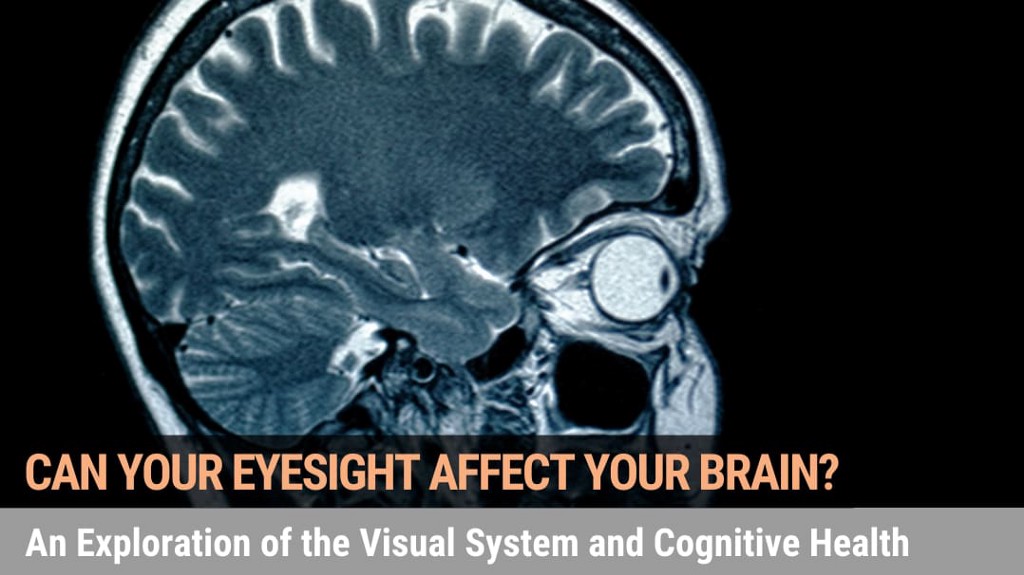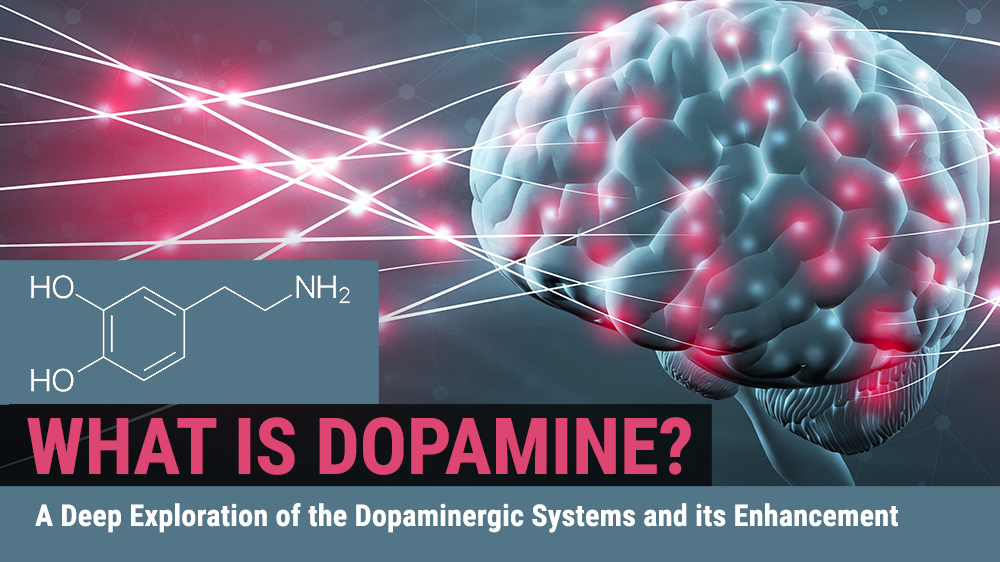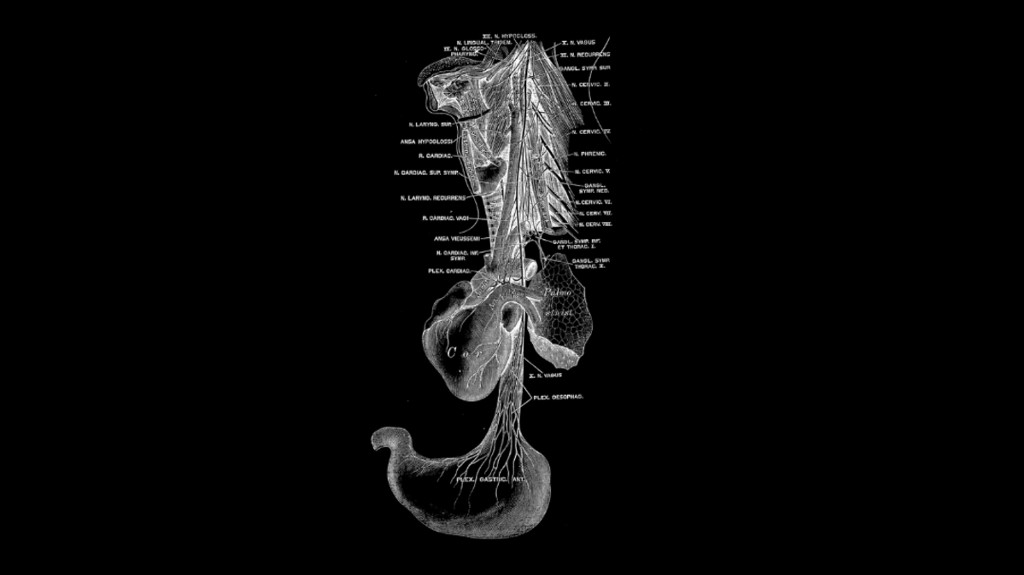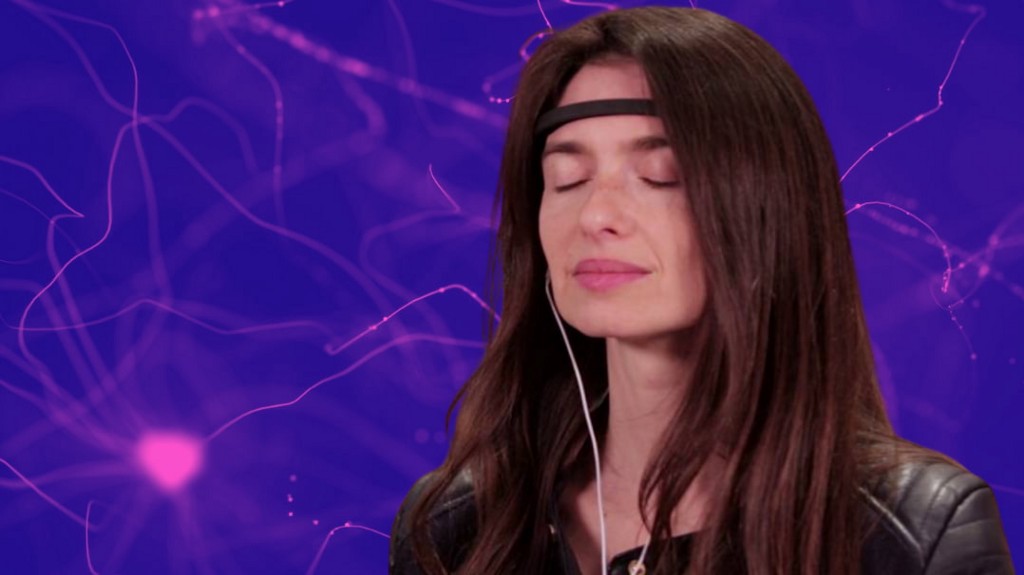
By: The Posts Author | Posted on: 11 Nov 21
Can Your Eyesight Affect Your Brain?The visual system, which controls eyesight, is the largest system in the brain and can directly affect many functions of thinking, memory and cognition. We acquire information about our environment through our senses and vision plays one of the most important roles in cognition. The visual pathways of the human brain start in the retina and carry sensory information to the primary visual cortex, where it starts being processed, and then to other areas of the cerebral cortex, where complex processing and association take place.Visual processing takes up a very large fraction of the human brain-around 27%
Can Your Eyesight Affect Your Brain?The visual system, which controls eyesight, is the largest system in the brain and can directly affect many functions of thinking, memory and cognition. We acquire information about our environment through our senses and vision plays one of the most important roles in cognition. The visual pathways of the human brain start in the retina and

By: The Posts Author | Posted on: 8 Nov 21
Introduction to DopamineDopamine is one of the main neurotransmitters in the brain. It is most commonly recognized for its role in reward, motivation, and pleasure, but also plays a crucial part in modulating focus, motivation, cognitive flexibility, and emotional resilience. In addition to these creative-productive capacities and states, dopamine is one of the main regulators of motor control and coordination of body movements.[1–5]Dopaminergic substances or actions affect dopamine-related activity in the brain. The proper functioning of the dopaminergic system is of high importance for cognitive performance and emotional drive. In this article, we review the dopaminergic system, including what dopamine is,
Introduction to DopamineDopamine is one of the main neurotransmitters in the brain. It is most commonly recognized for its role in reward, motivation, and pleasure, but also plays a crucial part in modulating focus, motivation, cognitive flexibility, and emotional resilience. In addition to these creative-productive capacities and states, dopamine is one of the main regulators of motor control and coordination of

By: The Posts Author | Posted on: 1 Nov 21
Expressing gratitude as a technique to boost mental health and interpersonal relationships is not a New Age fad; it’s a facet of the human condition that reaps measurable benefits to those who practice it. Long before the mindfulness movement of our modern era, gratitude was significant in ancient philosophies and cultures. Cicero, for example, cited gratitude as the mother of all virtues. And the Roman Stoic Seneca, conceived of gratitude as a fundamental motivational drive and an intrinsic component of the human experience.Gratitude is not only the greatest of virtues, but the parent of all the others. — Marcus Tullius CiceroKnowledge of how
Expressing gratitude as a technique to boost mental health and interpersonal relationships is not a New Age fad; it’s a facet of the human condition that reaps measurable benefits to those who practice it. Long before the mindfulness movement of our modern era, gratitude was significant in ancient philosophies and cultures. Cicero, for example, cited gratitude as the mother of

By: The Posts Author | Posted on: 14 Oct 21
“My eyes are always tired” …”My eyes hurt” …”I’m having a hard time focusing” …”My eyes feel dry and irritated” …”Things look blurry”High amounts of screen time cause the body to give us vision- and quite often posture-related feedback clues. It can also impact thinking and mood. Let’s focus on the visual system, because clues in this area are (1) a common type of feedback, and (2) an indication of visual system stress. Postural complaints, like neck stiffness and back aches, are partly to mostly a result of ergonomics, or postural discomfort, while looking at screens rather than the mere fact we were looking at
“My eyes are always tired” …”My eyes hurt” …”I’m having a hard time focusing” …”My eyes feel dry and irritated” …”Things look blurry”High amounts of screen time cause the body to give us vision- and quite often posture-related feedback clues. It can also impact thinking and mood. Let’s focus on the visual system, because clues in this area are (1) a common type of feedback,

By: The Posts Author | Posted on: 13 Oct 21
The vagus nerve could be likened to the queen of the parasympathetic nervous system — a.k.a. the “rest and digest” — so the more we can do things that “stimulate” or activate it, like deep breathing, the more we offset the effects of the sympathetic nervous system and reduce cortisol levels.Ideally, within your autonomic nervous system, the tug of war between these two opposing mechanisms creates a “yin-yang” type of harmony marked by homeostatic balance.Unfortunately, the hectic paced, digital age we find ourselves living in causes our evolutionary biology to short-circuit by throwing our individual and collective nervous systems out of balance.It’s for this reason that
The vagus nerve could be likened to the queen of the parasympathetic nervous system — a.k.a. the “rest and digest” — so the more we can do things that “stimulate” or activate it, like deep breathing, the more we offset the effects of the sympathetic nervous system and reduce cortisol levels.Ideally, within your autonomic nervous system, the tug of war between these two opposing mechanisms

By: The Posts Author | Posted on: 12 Oct 21
IsYour Screen Time Behavior is Impacting Your Vision? 10 Clues.“My eyes are always tired” …”My eyes hurt” …”I’m having a hard time focusing” …”My eyes feel dry and irritated” …”Things look blurry”High amounts of screen time cause the body to give us vision- and quite often posture-related feedback clues. It can also impact thinking and mood. Let’s focus on the visual system, because clues in this area are (1) a common type of feedback, and (2) an indication of visual system stress. Postural complaints, like neck stiffness and back aches, are partly to mostly a result of ergonomics, or postural discomfort, while looking at screens rather
IsYour Screen Time Behavior is Impacting Your Vision? 10 Clues.“My eyes are always tired” …”My eyes hurt” …”I’m having a hard time focusing” …”My eyes feel dry and irritated” …”Things look blurry”High amounts of screen time cause the body to give us vision- and quite often posture-related feedback clues. It can also impact thinking and mood. Let’s focus on the visual system, because clues in this

By: The Posts Author | Posted on: 12 Oct 21
It’s well established that meditation results in greater mental clarity and decreases stress. But can meditation make significant, actual changes to the brain? Yes. The studies referenced in this article reveal mindfulness practices bring about positive physiological changes, making the connection between meditation and the brain more profound than ever before.Meditation Impacts The Prefrontal CortexThe prefrontal cortex is the region of the brain associated with attention planning, higher-order processing, and organization. It’s what makes us human and separates us from other species. As we age, our prefrontal cortex thins. However, if we’re able to maintain a long-term meditation practice (a 20
It’s well established that meditation results in greater mental clarity and decreases stress. But can meditation make significant, actual changes to the brain? Yes. The studies referenced in this article reveal mindfulness practices bring about positive physiological changes, making the connection between meditation and the brain more profound than ever before.Meditation Impacts The Prefrontal CortexThe prefrontal cortex is the region of

By: The Posts Author | Posted on: 28 May 20
Insights from 14 of the world’s foremost long-term thinkersLong Conversation speakers (from top left): Stewart Brand, Esther Dyson, David Eagleman, Ping fu, Katherine Fulton, Danny Hillis, Kevin Kelly, Ramez Naam, Alexander Rose, Paul Saffo, Peter Schwartz, Tiffany Shlain, Bina Venkataraman, and Geoffrey West.On April 14th, 02020, The Long Now Foundation convened a Long Conversation¹ featuring members of our board and invited speakers. Over almost five hours of spirited discussion, participants reflected on the current moment, how it fits into our deeper future, and how we can address threats to civilization that are rare but ultimately predictable. The following are excerpts from
Insights from 14 of the world’s foremost long-term thinkersLong Conversation speakers (from top left): Stewart Brand, Esther Dyson, David Eagleman, Ping fu, Katherine Fulton, Danny Hillis, Kevin Kelly, Ramez Naam, Alexander Rose, Paul Saffo, Peter Schwartz, Tiffany Shlain, Bina Venkataraman, and Geoffrey West.On April 14th, 02020, The Long Now Foundation convened a Long Conversation¹ featuring members of our board and invited

By: The Posts Author | Posted on: 13 Mar 20
Chapter 1: Embodied Cognition, Living Systems and the Culture WarsWe are lost in the woods. It is 2020, and the mist grows thick and full of desperate voices. As we wander blindly, we hear growls that might mean the end of us. The decade began with images of hell fire; the burning bush in Australia flickering to the charred husk of Soleimani’s car. We are running out of time, and so we run. The voices cry out paths to freedom, but we don’t know which ones to trust or which way to turn.We have been lost for some time now. Many of
Chapter 1: Embodied Cognition, Living Systems and the Culture WarsWe are lost in the woods. It is 2020, and the mist grows thick and full of desperate voices. As we wander blindly, we hear growls that might mean the end of us. The decade began with images of hell fire; the burning bush in Australia flickering to the charred husk of

By: The Posts Author | Posted on: 13 Mar 20
Chapter 1: Embodied Cognition, Living Systems and the Culture WarsWe are lost in the woods. It is 2020, and the mist grows thick and full of desperate voices. As we wander blindly, we hear growls that might mean the end of us. The decade began with images of hell fire; the burning bush in Australia flickering to the charred husk of Soleimani’s car. We are running out of time, and so we run. The voices cry out paths to freedom, but we don’t know which ones to trust or which way to turn.We have been lost for some time now. Many of
Chapter 1: Embodied Cognition, Living Systems and the Culture WarsWe are lost in the woods. It is 2020, and the mist grows thick and full of desperate voices. As we wander blindly, we hear growls that might mean the end of us. The decade began with images of hell fire; the burning bush in Australia flickering to the charred husk of







